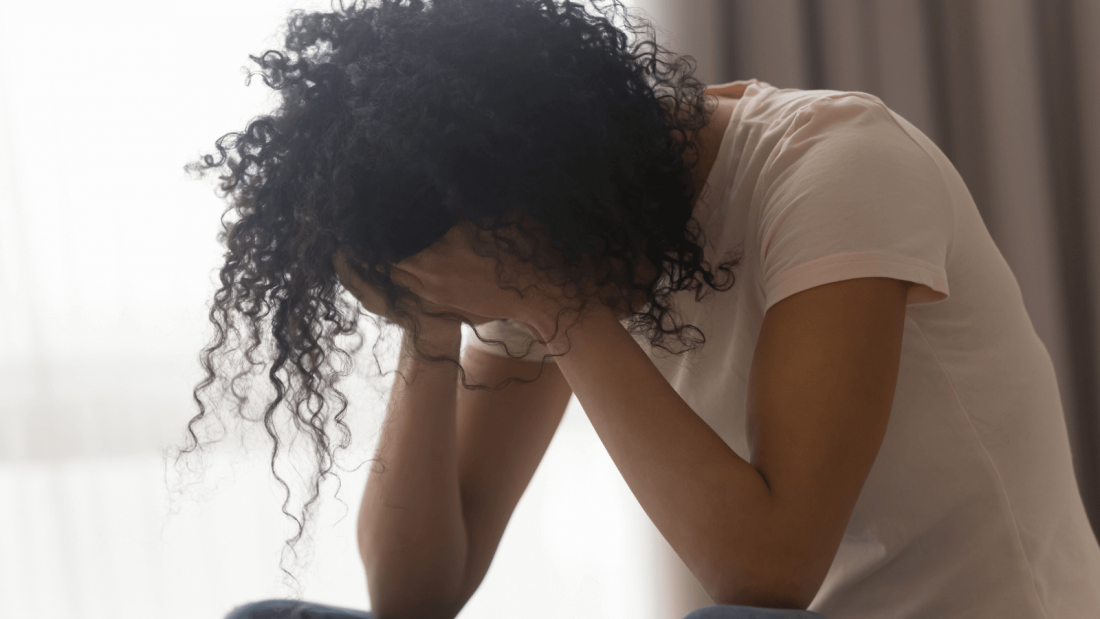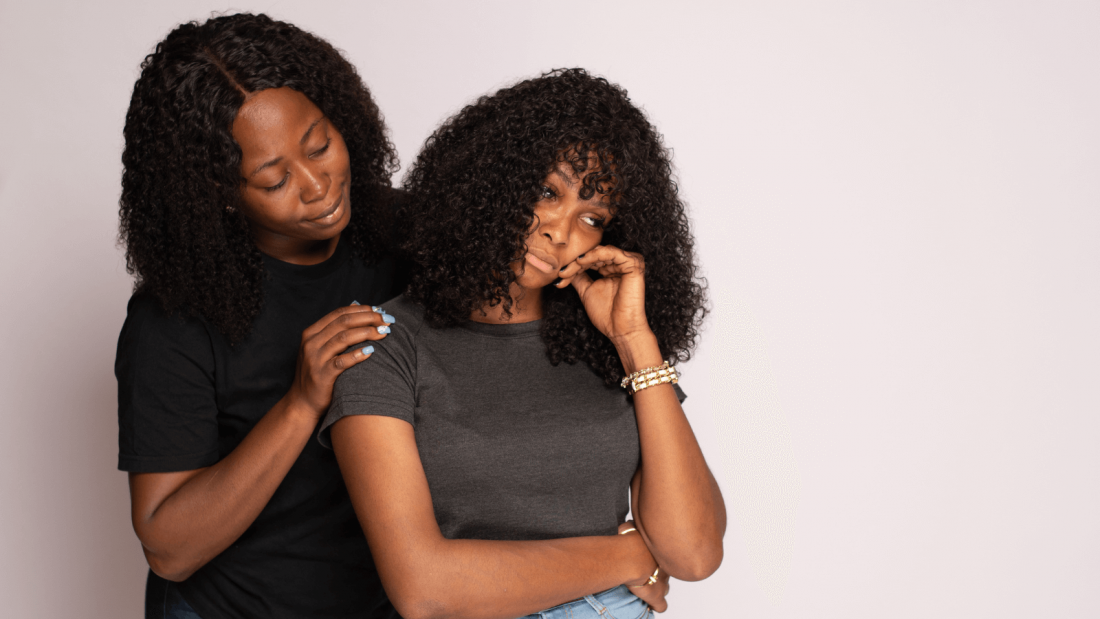Baby loss is more common than we think, with roughly one in four pregnancies ending in loss either during the pregnancy or birth. Two readers share their stories with us.
Losing a baby, is just one of many ‘taboo’ topics within the Black community. According to a Lancet report, miscarriage rates are 43% higher among Black women. Despite the fact that in the UK, roughly a quarter of all pregnancies end in loss, either during pregnancy or birth, many women still feel alone while dealing with the aftermath of baby loss, partly because of the lack of conversation around the topic.
During Baby Loss Awareness Week (9 – 15 October 2022), we spoke to two readers who bravely shared their baby loss experience with us, to help others who have or are going through the heartache of losing a baby.

Eva’s baby loss story
Grief specialist, Eva, has sadly lost five babies. She bravely shares her experience in her book, Tears of a Mother: Where Love Triumphs Over Loss. Sharing the names she gave to each angel baby, Eva said: “The first one I called Joshua, the second one Tendo the last three I called Baby 3, Baby 4, and Baby 5.”
She continues: “I didn’t give conventional names to the last three because I didn’t have to labour after I lost them.”
Eva lost her firstborn, Joshua, at seven months, Tendo at six months and three weeks, Baby 3 at 13 weeks, Baby 4 at 12 weeks and Baby 5 at 12 weeks. Speaking on how she felt when first learning about her losses, Eva transparently shares: “For Joshua, I didn’t believe it was happening to me and because it was my first time, I didn’t know what to expect. What comforted me, when I was told there was no heartbeat, was when a few ladies told me they had also lost a baby. So, I didn’t feel so alone.”
What NOT to say to someone who has lost a baby!
On losing Baby 5, Eva said: “The grief was deep and palpable coupled with post-natal depression. That whole experience is one that I would never wish on anyone.”
After her baby losses, Eva said she: “Was given some grief counselling from the hospital, which to be honest was not helpful at all. I got some grief counselling from my church, and from the local authority, too.”
“For all the feelings you are feeling, you are not losing it. It is normal.”
Having found her strength once again after going through so much pain, Eva talks about how she feels now: “I feel privileged to have had my angels for the periods that I did. I know I would have had a different preference, but that is what I got.”
The 50-year-old continues: “Some people have not been able to experience being pregnant. The silver lining in all my experience is that I am able to help those people who are experiencing grief.”
“So, all was not lost on me. I am single with no babies and happy enjoying what life has to offer to me.”
Leaving encouraging words for others experiencing baby loss, Eva says: “For all the feelings you are feeling, you are not losing it. It is normal. Find someone to talk to, preferably a professional who can help you navigate your emotions.”
Why are Black women more likely to suffer a miscarriage than others?

Minolta’s baby loss story
Minolta, also a writer, is mother to one angel baby girl, who she named Nailah. Minolta lost Nailah whilst five months pregnant. When the doctor confirmed Nailah no longer had a heartbeat, Minolta said she “felt pain and devastation”. Explaining what help she received during grieving, Minolta shares: “I discovered this Prenatal Loss Group for women virtually. It was through this that I found a part of myself again. With the six weeks of group therapy with other women who understood my experience, I was able to breathe again.”
“For a while, it was hard for me to look at my body or photos of me while pregnant.”
Now, looking back on losing Nailah, Minolta says: “I’m much stronger than before. For a while, it was hard for me to look at my body or photos of me while pregnant. Even though my daughter is not here physically, she’s still very much a part of my journey as a mum. That brings me comfort.”
For those who have experienced baby loss, Minolta says: “Acknowledge the pain. The more you try to ignore it, the more damage it causes. The pain won’t last long. It becomes a reminder of what has happened. Trust that there is hope and joy on the other side of it all. Be open to being a mother in different ways. That love you want to give to your unborn child has to go somewhere. Give that love to someone in your life.”
If you would like support with baby loss, you can contact: Tommys.org
Maxine Harrison












